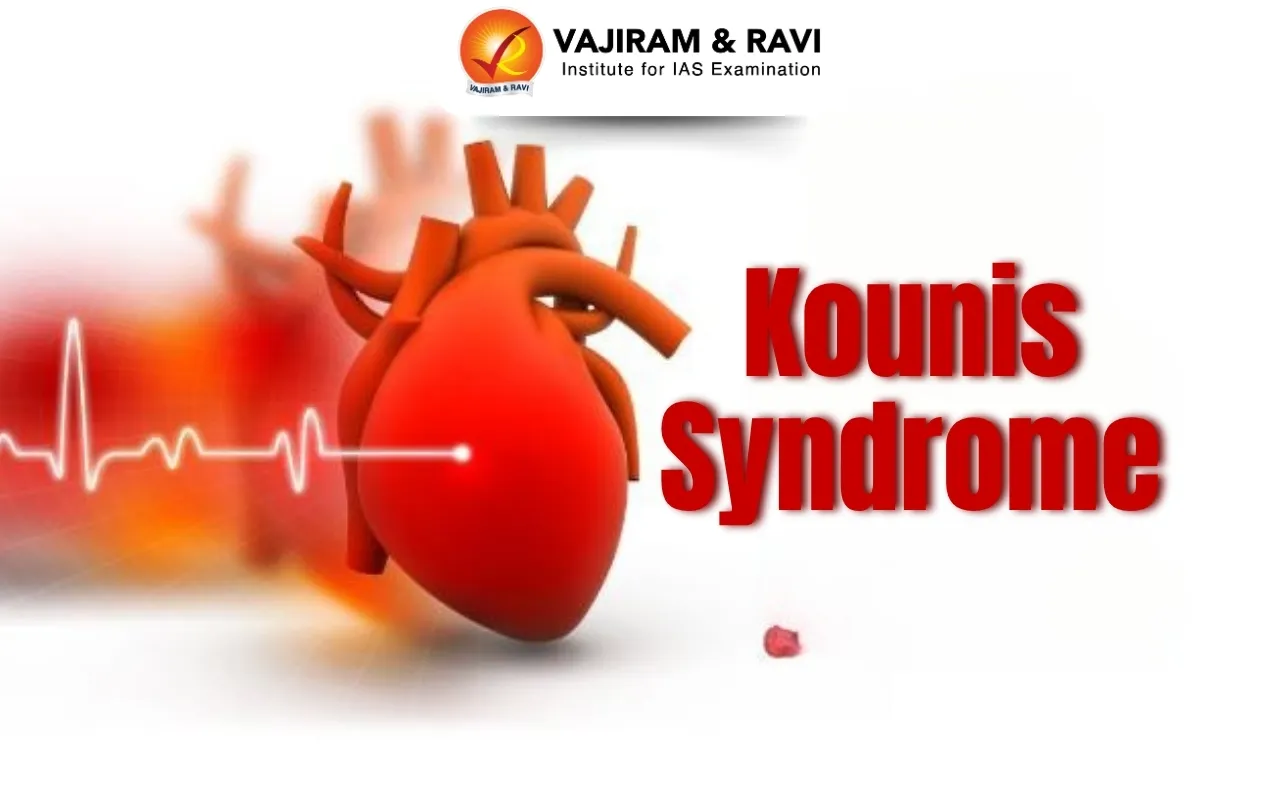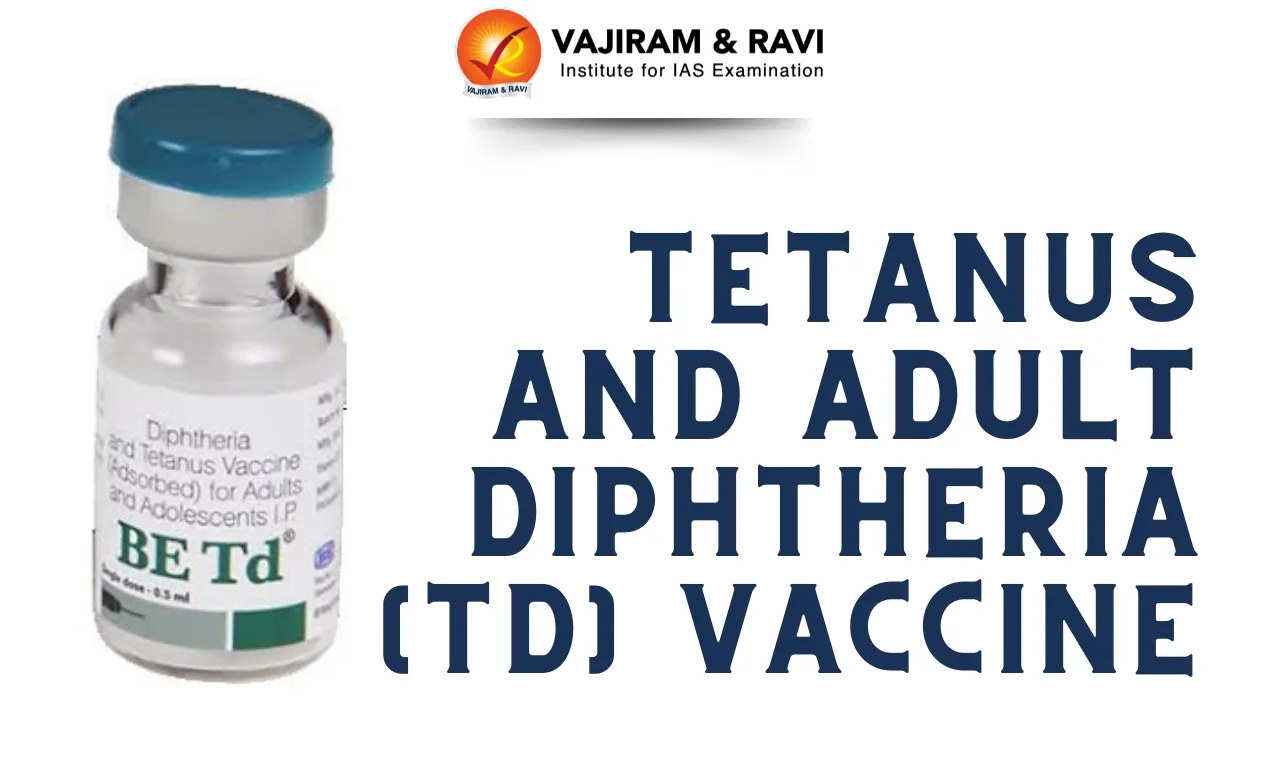Kounis Syndrome Latest News
Recently, a prominent Indian industrialist died due to bee sting which raised questions about rare allergic reactions named Kounis Syndrome and sudden heart attacks in healthy adults.
About Kounis Syndrome
- It is a rare medical condition where an allergic reaction triggers a heart problem.
- It is classified as a form of acute coronary syndrome (ACS)–a term typically used for conditions like heart attacks–brought on by an allergic or hypersensitivity response.
- It is sometimes referred to as allergic angina or allergic myocardial infarction.
- It occurs when a person is exposed to a trigger–such as an insect sting, drug, or food–the body’s immune system activates mast cells, which release chemicals including histamine and cytokines.
- These substances cause sudden spasm or tightening of coronary arteries, may rupture or erode existing plaque, worsening any blockages and reduce blood flow to the heart, leading to ischemia (lack of oxygen) or infarction (tissue death).
- Symptoms: Chest pain, Rash, hives, or swelling (angioedema), shortness of breath or wheezing, low blood pressure, ECG changes such as ST-segment elevation or depression
Types of Kounis Syndrome
- Type I: Occurs in individuals with normal coronary arteries. The allergic reaction causes spasms, reducing blood flow and potentially leading to a heart attack.
- Type II: Affects those with existing coronary disease. The allergic reaction destabilises plaques, causing rupture and a full heart attack.
- Type III: Seen in patients with coronary stents. The allergic response may lead to clot formation within the stent.
What can Trigger it?
- Insect stings or bites (such as bees and wasps)
- Certain medications, particularly antibiotics and NSAIDs (painkillers)
- Foods, such as shellfish, nuts, or kiwi
- Environmental allergens such as latex or contrast dyes
- Underlying health conditions like mastocytosis (a disorder involving excess mast cells)
Treatment for Kounis Syndrome
- For the allergic reaction: antihistamines, corticosteroids, and sometimes epinephrine is given
- For the heart: standard cardiac care like oxygen, nitrates, and blood thinners
Source: FE
Last updated on February, 2026
→ UPSC Notification 2026 is now out on the official website at upsconline.nic.in.
→ UPSC IFoS Notification 2026 is now out on the official website at upsconline.nic.in.
→ UPSC Calendar 2026 has been released.
→ UPSC Final Result 2025 is expected to be released in the second week of April 2026.
→ Check out the latest UPSC Syllabus 2026 here.
→ Join Vajiram & Ravi’s Interview Guidance Programme for expert help to crack your final UPSC stage.
→ UPSC Mains Result 2025 is now out.
→ UPSC Prelims 2026 will be conducted on 24th May, 2026 & UPSC Mains 2026 will be conducted on 21st August 2026.
→ The UPSC Selection Process is of 3 stages-Prelims, Mains and Interview.
→ Prepare effectively with Vajiram & Ravi’s UPSC Prelims Test Series 2026 featuring full-length mock tests, detailed solutions, and performance analysis.
→ Enroll in Vajiram & Ravi’s UPSC Mains Test Series 2026 for structured answer writing practice, expert evaluation, and exam-oriented feedback.
→ Join Vajiram & Ravi’s Best UPSC Mentorship Program for personalized guidance, strategy planning, and one-to-one support from experienced mentors.
→ Check UPSC Marksheet 2024 Here.
→ UPSC Toppers List 2024 is released now. Shakti Dubey is UPSC AIR 1 2024 Topper.
→ Also check Best UPSC Coaching in India
Kounis Syndrome FAQs
Q1. What drugs cause Kounis syndrome?+
Q2. What is the pathology of Kounis syndrome?+
Q3. What is histamine and its function?+
Tags: kounis syndrome prelims pointers upsc current affairs upsc prelims current affairs




















